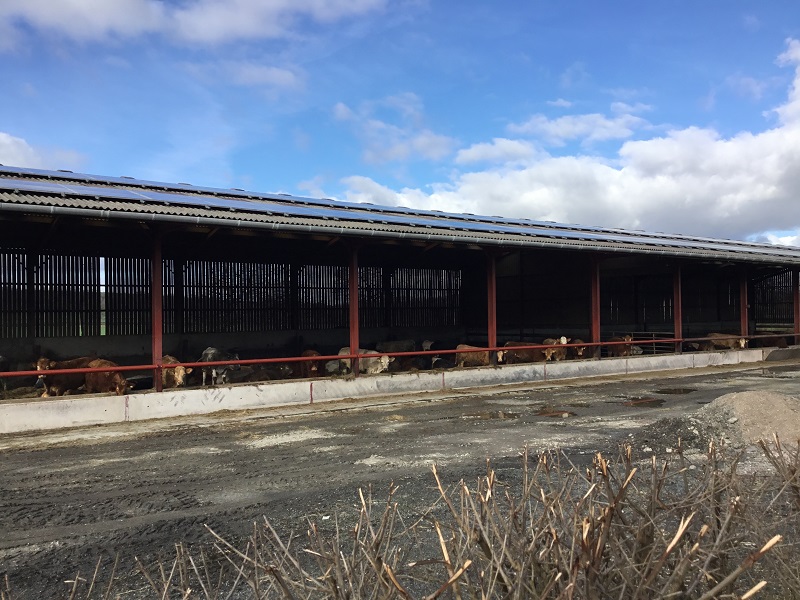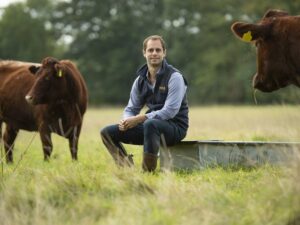Renewable energy offers huge potential for many farms, but landowners should be warned that some energy firms are trying to sell unfeasibly large installations.
The appeals of investing in an on-farm renewable energy project range from cutting energy bills to reducing carbon footprint, but farmers are being mis-sold large-scale systems that they do not need, explains Hugh Taylor, CEO at independent energy consultant Roadnight Taylor. “When firms quote for a new renewable installation, they may push for the ‘bigger-is-better’ option, however most farms are unlikely to need anything that large or expensive.”
Dairy farmers Clive and Andrew Gurney installed a 38.4kW photovoltaic unit on his farm in 2012, but when later looking to expand this, a solar installer encouraged him to invest far beyond his needs.
Having installed four robotic milkers in 2016 and when they were milking 250 cows at Abbey Court Farm, Leominster, the Gurneys were keen to continually invest in their business and improve upon the already high standards of animal welfare and environmental care. “The whole objective of the farm was to be as sustainable as possible– from growing almost all feed to recycling farm manures and collecting run-off,” explains Clive Gurney.
“The original PV system fitted perfectly into this ethos as we have so many large, south-facing roofs and it was common sense to make use of the subsidies for self-generated energy.”
As part of the investment plan, the Gurneys started to look at reducing their carbon emissions as much as possible – something their milk buyer was also encouraging. “One idea was to put more solar panels on the roofs, so we arranged a visit with a salesman.”
This visit resulted in an initial quote of £143,268 plus VAT for a 120kW installation plus a battery storage unit. “The salesman said it was fool-proof and we wouldn’t have to buy any electricity, especially if we used storage batteries, plus we could sell back to the grid,” says Mr Gurney.
“We immediately thought it was worth getting independent advice so went to Dairy Tech to source this. With anything like this, if you invest you get locked-in, so it’s important to do as much research as possible,” he explains.
“I met Hugh Taylor from Roadnight Taylor at the show and had a long conversation with him which fired off alarm bells. Roadnight Taylor then carried out a feasibility study and said the 120kW quote was ridiculous.” Spilling so much excess energy onto the grid would have earned relatively little, and the business would have had to invest in extra plant to handle the extra power, adding £10,000 to the costs.
The independent study highlighted that the business needed no more than an extra 25kW of solar panels to best meet its demands, with a payback of about eight years and a net benefit of around £2,000 a year, after the initial installation costs.
It also identified low-cost energy efficiency measures, and noted the potential for a small AD plant to use the farm slurry. “As a result, we didn’t undertake any further expansion to our solar panels and are now looking at the other potential areas in which to invest.”
Given the complexities of running a farm business and the changing renewable markets, seeking independent advice is incredibly valuable, says Mr Gurney.
“An important thing for me was the element of trust with Roadnight Taylor – they weren’t trying to sell me something but were trying to look after my interests. It means I can approach them again and know that the information they provide will be worthwhile.”
For more information call 01993 830571 or visit www.roadnighttaylor.co.uk




